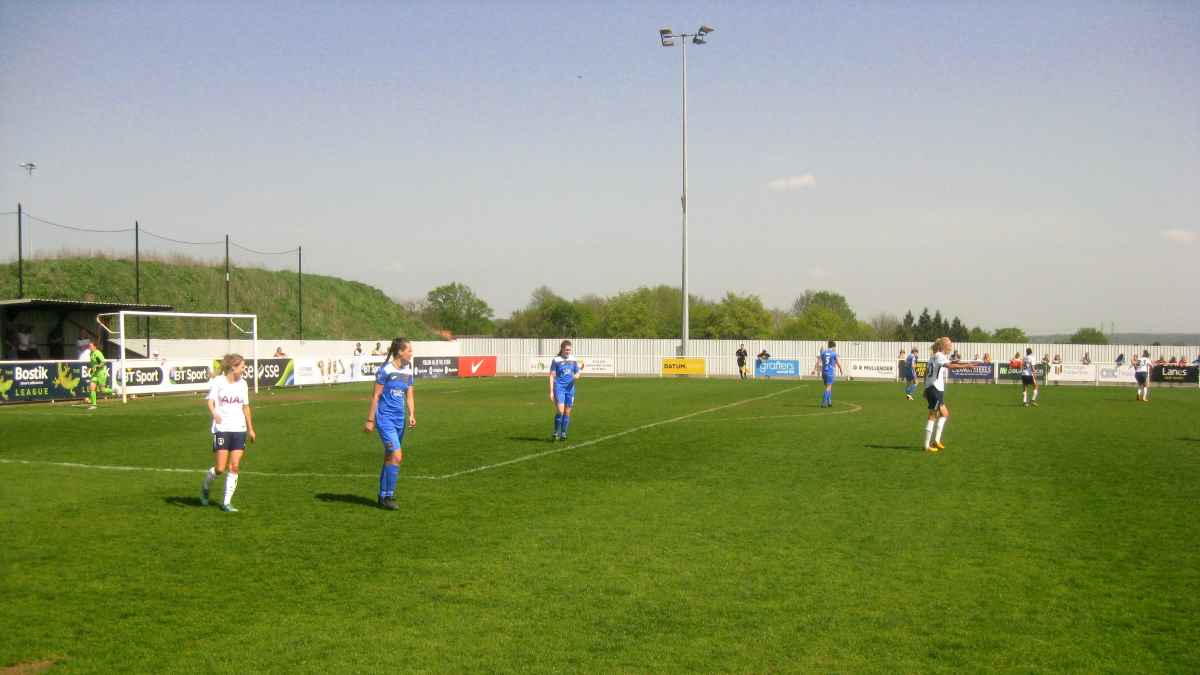
From Alessia Russo’s impudent backheel to Chloe Kelly’s last-gasp winner, the England Lionesses’ steely performances in the Euros finals captivated the nation.
While taking home the European Cup will have done much to increase the popularity of the women’s sport, their success is likely to have a wider impact off the field too.
Kelly Simmons OBE, the FA director of the women’s professional game, has seen first-hand the influence that female representation can have, both within football and in the wider corporate world.
Here, she shares her journey to the top and the challenges she faced along the way.
What is the value of professional groups for women in business and leadership roles?
I’m really proud to be part of Women in Football. It’s a networking and a campaigning group that I think is really important, especially for the industry that I work in where, clearly, women are really under-represented. The organisation is about the about women in football, as well as women’s football, and driving greater gender representation. We know the benefits that will bring to the industry and help make it better and more successful.
Having that network of women support each other, having male allies, is tremendously important. They’re key to helping drive change. Plus, it helps the investment in that pipeline of talent. We have to make sure that pipeline of female talent is there, it’s supported and that we invest in the leadership and development and mentoring of women. Women in Football do all of that work to make sure we have a more diverse industry going forward.
Why is it important to have female representation in business leadership?
It’s hugely powerful and it’s really important because you can’t be what you can’t see. It’s important for young women to look up and see other women and think, ‘Yes, I can get there. I can have it all. If I want a family, I want a career, if I invest in my development and work hard, I can come through to the top.’ That visibility is really important.
I’m lucky enough to work in football where an added dimension to that – and what I find really motivating and inspiring – is going to events like the Women’s FA Cup final, where young boys and girls are seeing these incredible, strong, healthy athletic role models who are using their platform to champion good causes. To see boys with the name of [Manchester City and England footballer] Lucy Bronze’ on the back of their shirt sends a really important message to boys as well as girls about what women and girls can do in society. That’s what inspires me to try and do better every day.
What are the challenges around changing perceptions of the football industry on behalf of women?
The history of football is male dominated. Our job is to make women’s football much more visible, and viable and accessible. In all the work we’ve done, whether that’s the Lionesses and 25 million people watching them during the Women’s World Cup, or women’s Super League – where 2.5 million people a week are watching live games and highlights – it’s all about showing that football is for everybody.
I’m determined to make sure this generation has much more opportunity in football. The visibility and profile of the women’s game is hugely important as part of changing the culture
I’m inspired by the fact I wasn’t allowed to play football as a girl even though I desperately wanted to; I felt that there was a real injustice. Therefore I’m determined, as so many people are in the industry, to make sure this generation has much more opportunity in football. The visibility and profile of the women’s game is hugely important as part of changing the culture.
What are your top three tips for aspiring female leaders?
First, you’ve got to focus on taking responsibility for your personal development. You’ve got to take responsibility for making sure you’ve got a really clear personal development plan and that you’re fighting to get that investment.
If you get an opportunity to get a coach or a mentor, you’d be crazy not to take it. And then, just being a sponge for learning. Leaders are big readers. Take time out from your busy schedule to read up on your industry.
How would you define your leadership style?
Collaborative. I like to build relationships internally and externally, and work with people. I’m very much a team player. I really like to listen to everybody’s views; I never have all the answers.
I like to work in a team and bring teams together that are committed to the cause. I think working together to have a clear vision and strategic plan means that you can check in against your purpose, vision and values, and make sure you’re on track.
This piece was originally published on 6 April 2022 and was updated following England Women’s Euro 2022 win
